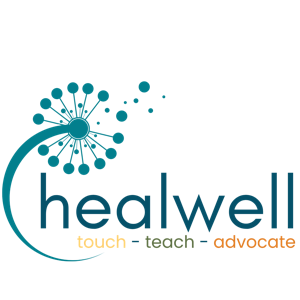At Healwell, we have gotten a number of questions from therapists all over the US asking if their liability insurance (through ABMP or AMTA) "covers" them in the event that they get COVID-19 or one (or more) of their clients gets COVID-19.
The short answer is "No."
It doesn't matter who you're with. Neither ABMP or AMTA's liability insurance (nor any others) will "cover" you if you get or transmit COVID-19. The transmission of infectious disease is so difficult to track that liability insurance policies either don't mention it as a covered "accident" or "occurrence" at all or they have specific clauses that exclude it. AMTA has been sharing that they will cover their members "on a case by case basis." This is a wiggly answer. This is not "yes."
It's also important to note that if you're practicing in accordance with your state and local jurisdictions' guidelines, your liability insurance is VALID, but it will not protect you if you get COVID-19 or if it is decided that you/your practice transmitted COVID-19 in the course of providing care. It never has and it won't now.
Massage therapists have not given this issue much thought before, but honestly, even before COVID-19, if you got SARS, the flu, AIDS or any number of other infectious diseases in the line of duty, you would not have been covered. Same goes for your clients if you transmitted any of these diseases to them during providing care to them.
Healwell does more than 85% of its work in hospital settings and outpatient clinical settings (the rest of our work takes place in patients' homes). Every time we enter into a contract with one of these clinical partners we sign a contract that contains language like what you see below.
Assumption of Risk. All massage therapists, while working on Clinical Partner ABC premises, or with Clinical Partner ABC patients, assume and bear full and total risk for any diseases, infections, and/or any other ailment which may be contracted in the normal course of exposure to the medically sensitive environment that is natural to a hospital. Such diseases or infections may include, but are not limited to, nosocomial infections, iatrogenic infections and any epidemics or "surges" of diseases occurring in the community.
(NOTE: Nosocomial means "originating in a hospital." Latrogenic means "relating to illness caused by medical examination or treatment," i.e. hair loss from chemotherapy, swelling from surgery, etc.)
Mitigation of Risk. To avoid exposure and lessen the risk of any infection, accidents, or mistakes in the care of Clinical Partner ABC's patients, Healwell Therapists will follow all protocols and instructions given by Clinical Partner ABCdoctors, nurses, or other clinical staff.
The gist here is "You're about to work with people. People are germy. Be safe and know that there's still a solid chance you'll get some kind of illness while working with said people."
If you're saying, "Well, I don't work in a hospital, so this doesn't apply to me.", think again. This does now and always has applied to you, actually.
The "protocols and instructions" mentioned above aren't coming from doctors and nurses. In fact, they're coming from lots and lots of different places and they are all different and they change every time we learn something new about COVID-19.
If you find yourself in court, defending your protocols and disinfection practices, the protocols that are brought to bear in your case could be chosen from any number of places, depending on the lawyers and the liability insurance representatives. Is it the CDC's guidelines? Is it the State of Kentucky's guidelines (Your guidelines are swell, Kentucky. We're not picking on you!)? Maybe it will be the guidelines issued by your governor's office or the state health department. Maybe they'll let you refer to your own guidelines. Nobody knows because it hasn't happened yet; and it will happen differently in every single jurisdiction when and if it does. The same is true if you got/transmitted SARS, the flu, Hepatitis B or any number of other infectious diseases.
This is why you are taught not to go to work when you feel sick and why you are taught not to work with clients/patients who are sick or who think they might be sick. In addition to it being just plain unsafe and unethical, you will not be covered by your professional insurance if you need treatment for said disease that you think you contracted while seeing clients. Likewise, if your client is able to prove that they contracted COVID-19 during care they received from you, your insurance will not protect you.
There may be easier tasks than proving transmission of disease in either direction, so if you play the odds, maybe you'll dodge the bullet of being credibly "blamed" for COVID-19 transmission, but don't worry about insurance coverage when you think about whether or not it's time to go back to seeing clients. It's a risk you've been taking ever since you started practicing. There's just a new disease to add to the list.
Neither you nor our professional associations can afford the kind of insurance that would cover you if you get or transmit COVID-19.
